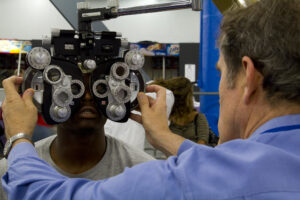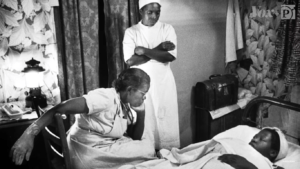So You’ve Become a Patient Safety Statistic—Now What?
By Marshall Allen, ProPublicaThis post, originally published on ProPublica Sept. 18, 2012, has been updated.I often speak to people who have become victims of patient harm. They, or maybe a loved one, went to the hospital, nursing home or doctor’s office and suffered a preventable injury, infection or medical error. Many times they’re seriously disabled. […] Heather Ingram - Photographer (CC BY-NC-SA 2.0)
Heather Ingram - Photographer (CC BY-NC-SA 2.0)
By Marshall Allen, ProPublicaThis post, originally published on ProPublica Sept. 18, 2012, has been updated.
I often speak to people who have become victims of patient harm. They, or maybe a loved one, went to the hospital, nursing home or doctor’s office and suffered a preventable injury, infection or medical error. Many times they’re seriously disabled. Or they’re calling me because their family member or loved one was killed.
If studies are accurate, more than a million patients are harmed a year by the medical care they thought would heal them. When it happens, many patients and their family members don’t know where to turn for answers and accountability.
To provide some guidance I spoke to Helen Haskell, founder of Mothers Against Medical Error. She recommends they take six steps.
If you’re a patient who has been harmed, help us explore the issue by sharing your story with ProPublica reporters. We’re also seeking medical providers to volunteer their expertise.
1. Get a copy of medical records. Every patient has a right to his or her medical records under federal law. These records can provide important information about what happened – and what might have gone wrong.
What to do: As soon as possible after the incident, contact your doctor’s office or go to the hospital’s medical records department and ask for a complete copy, including doctor and nursing notes, lab results and copies of diagnostic images. (Warning: There may be significant charges for copying, and records can sometimes be altered.)
2. Make sure the incident is reported internally. Accredited hospitals are required to conduct internal investigations of serious medical incidents. And they’re supposed to have procedures in place to deal with incidents that lead to patient harm or could lead to patient harm.
What to do: Ask to be part of the investigation, or to at least have your version of events on record as part of the analysis.
3. If the patient has died, order a forensic autopsy, which includes toxicology tests. Autopsies — though not always 100 percent accurate — are the most reliable means of finding out what happened in an unexpected death. Hospitals do not routinely conduct autopsies, but the family has the right to get one.
What to do: In some situations, the local coroner or medical examiner is supposed to be called if a patient dies in a medical facility. If the authorities decline to take the case, the family may have to pay for a forensic autopsy. In that case, ask the coroner or medical examiner’s office for a referral to an independent pathologist.
4. Consider calling an attorney. Be aware that the standards for proving medical malpractice are much higher than most patients expect. Attorneys take few cases because they’re expensive to pursue and difficult to win. Even if an attorney does not take your case, however, he or she may help you deal with the hospital or other providers.
What to do: Ask friends or lawyers you know for the name of an experienced malpractice attorney. Or find one online.
5. Meet with the doctor and hospital officials. Ask them how they will prevent future harm to other patients. If the patient has suffered damages or died, you can also negotiate directly with the providers to waive medical bills or agree on an amount for compensation. You may wish to bring an attorney to help ensure that any agreement you make is in your best interest.
What to do: The Assertive Patient has some tips.
6. Report the incident to regulators, who can investigate. While regulatory action is often much milder than patients assume is warranted, it creates a paper trail. Providers may be cited or fined and required to create a program for improvement.
What to do: It’s necessary to report to the correct agency:
—
Update: This post first appeared in ProPublica’s Patient Harm Facebook Group. We are updating it here as part of our ongoing reporting into patient safety.
- State health departmentslicense hospitals and nursing homes.
- The Joint Commissionaccredits hospitals.
- Doctors are accountable to a medical board.
- Nurses answer to a nursing board.
- Medicare patients can also complain to Medicare or a Medicare Quality Improvement Organization.
Independent journalism is under threat and overshadowed by heavily funded mainstream media.
You can help level the playing field. Become a member.
Your tax-deductible contribution keeps us digging beneath the headlines to give you thought-provoking, investigative reporting and analysis that unearths what's really happening- without compromise.
Give today to support our courageous, independent journalists.






You need to be a supporter to comment.
There are currently no responses to this article.
Be the first to respond.